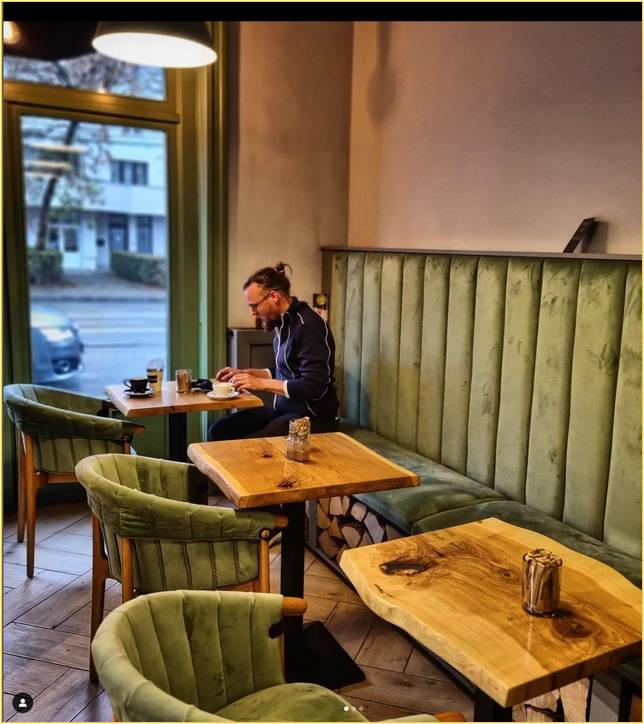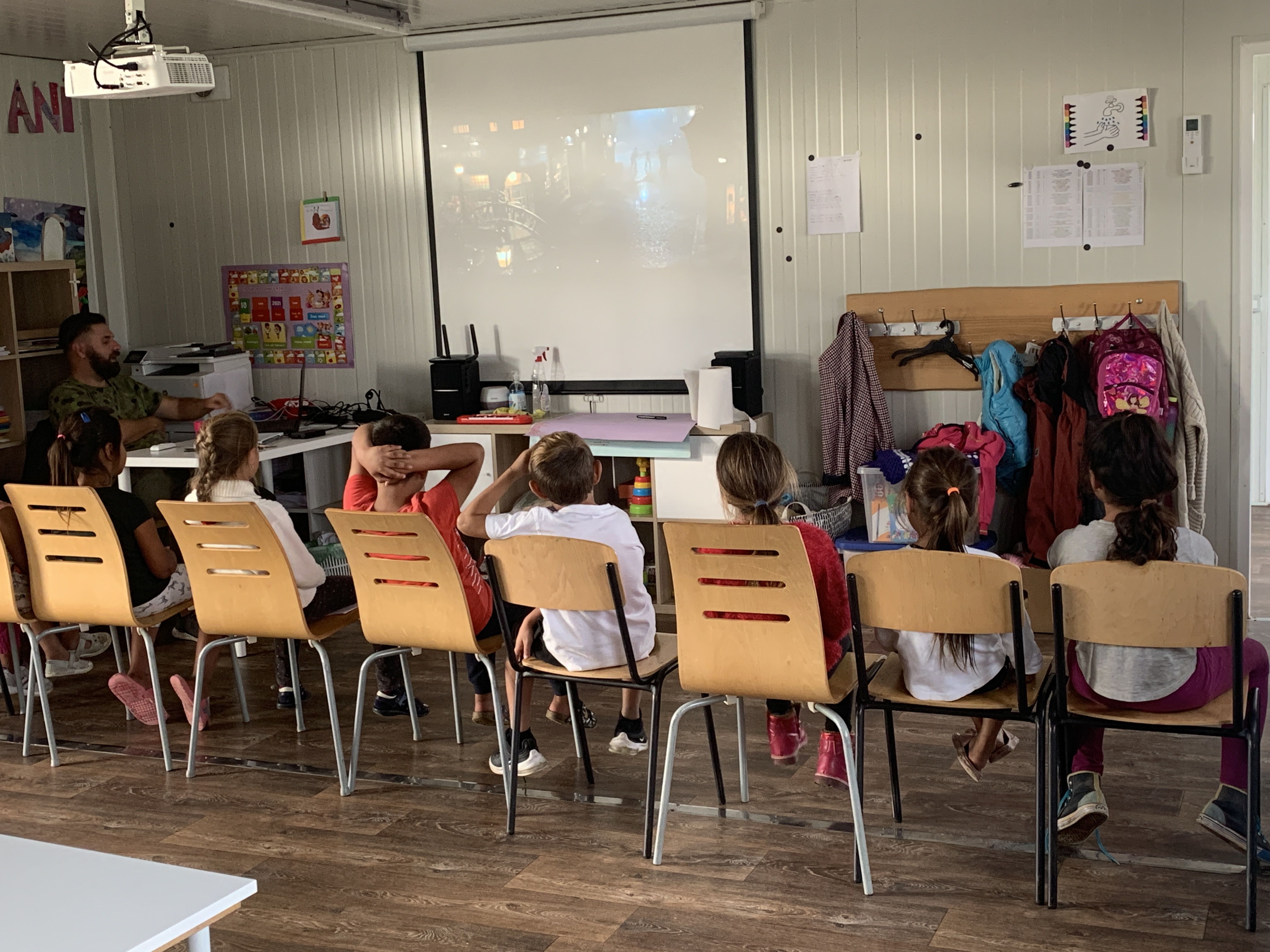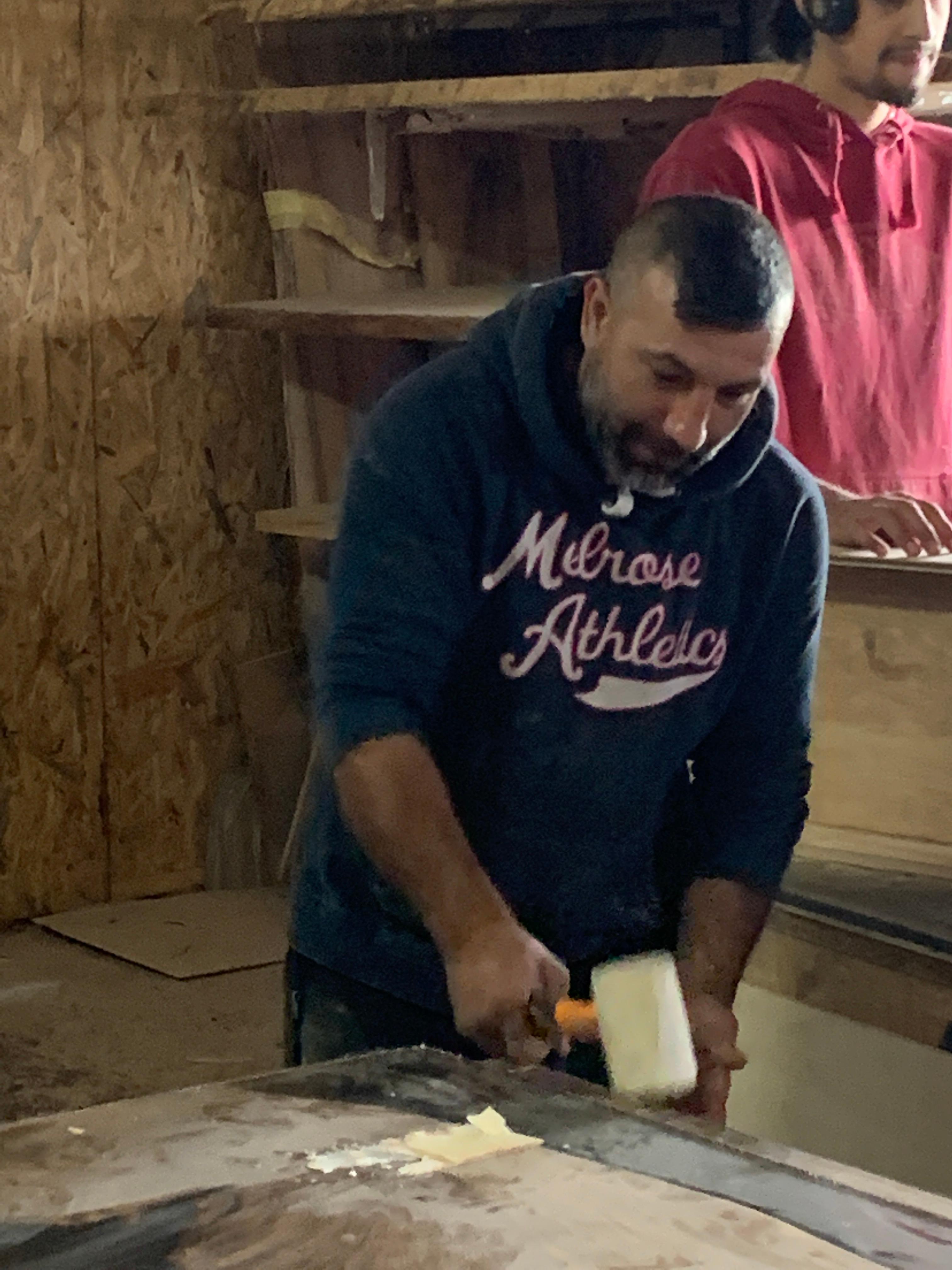SIRU 2.0 Case: Seeds of Kenosis Design

SIRU 2.0 is financed by by Tillväxtverket with EU funding, and by Region Jönköpings län.
Design furniture that creates integration!
People should be proud of their work!
If you go to a trendy cafe in Romania, or visit a young couple with well-paying jobs, chances are you'll come across one of Kenosis' products. Unique tables, shelves and cutting boards in oak and walnut, often with details in brass and leather. Craftsmanship that costs, and that any Swedish furniture retailer would be proud to have in their range!
The reality behind the fine furniture stands in stark contrast to the exclusivity that the craftsmanship exudes. The furniture is created in a small workshop on the outskirts of the city of Timisoara and those who make it are not trained and experienced carpenters, but a mixed crowd of Romanians and Roma. Most have long experience of exclusion and lack education. Few in Romanian society show them respect or trust, and the workers have grown accustomed to unemployment and poverty.
Kenosis was founded in 2018 by a young, Swedish entrepreneur who lives in Romania. Andreas Samuelsson has both a heart for Roma people and long experience of collaborating with them. During his 19 years in Romania, he has learned that integration emerges from practical action and a long-term commitment, and not from fine words and short projects. Therefore, supervision in carpentry alternates with supervision in life at the factory. The supervisors model not only professional skills but also healthy relationships and lifestyles. Personal development is based on an investment in the individual. Kenosis' experience is that a worker who receives respectful treatment and trust, eventually also shows respect and trust to others. And self-esteem comes when you create a product that is in demand and appreciated.

Quick Facts
- Founded: 2018
- Located in: Timisoara, Romania
- Family business? No
- Employees: 20
- Sustainability certifications? No
- Case author: Duncan Levinsohn
In which areas is the company committed to sustainability and social innovation?
- Integration into society and working life.
- Poverty alleviation.
- Resilient families and communities.
How does the company address societal challenges in an innovative way?
- Kenosis Design's business model is something of a paradox: design furniture is produced by labor that most employers do not value. The factory's Roma workers would not be welcome in most of the restaurants that Kenosis Design supplies to, but the furniture they produce is sought after and takes center stage in those same restaurants! Could the product be a first step towards challenging society's preconceived notions about what Roma can do?
- The company Kenosis Design is part of a foundation together with a non-profit organization that runs a school in the Giarmata district. In doing so, the foundation takes a holistic approach and does not only look after the worker's living environment at the workplace. Many of the factory workers have children and their future is benefited not only by the work that a parent gets close to home, but also by the 'bridge' that the village school creates between the Roma community and the state school.

What social benefit does the company create?
- Through Romanians and Roma working together, you get to know each other and build community and mutual respect. Outsiders and segregation are opposed.
- The long-term involvement of Roma employees leads to both in-demand professional skills and general employee competence (taking responsibility, communication and discipline in the workplace). Unemployment and part-time work are decreasing.
- A regular income gives workers the opportunity to save money to invest in housing, education, food and leisure. The individual's capacity to handle crises (illness, accident etc. increases).
- By offering work close to home, you increase the presence of parents and other adults both in families and in the local community. Steady work and an increased presence of parents in the home reduces the involvement of young people and the unemployed in crime and short-term/risky work.

Kenosis design employee creating a designer product
What makes the company particularly interesting as an example?
- Through Romanians and Roma working together, you get to know each other and build community and mutual respect. Outsiders and segregation are opposed.
- Kenosis Design demonstrates the power of collaboration between the private and non-profit sectors, as well as with research! Jönköping University contributes to the company's development through coaching, and Andreas Samuelsson is employed by the religious community Swedish Alliance Mission. The non-profit organization Erikshjälpen has supported the company and the foundation for many years, and enables the company's 'entire' involvement in the local Roma community.
- The company demonstrates the importance of countering segregation not only through employment, but through meaningful employment. Many initiatives to combat unemployment offer individuals jobs that are repetitive and do not develop professional skills. In such an environment, it can be difficult to build responsibility and self-esteem. Kenosis Design develops individuals to produce products that are sought after and create professional pride.
- Being a 'real' company, Kenosis Design needs its employees! Being a small organization is both an advantage and a disadvantage. For the employees, the small size means that their own contribution becomes extra tangible - both when it works well and when it is lacking. The financial reality of the company promotes employee accountability, as the consequences of mistakes and low production are often made clear.

